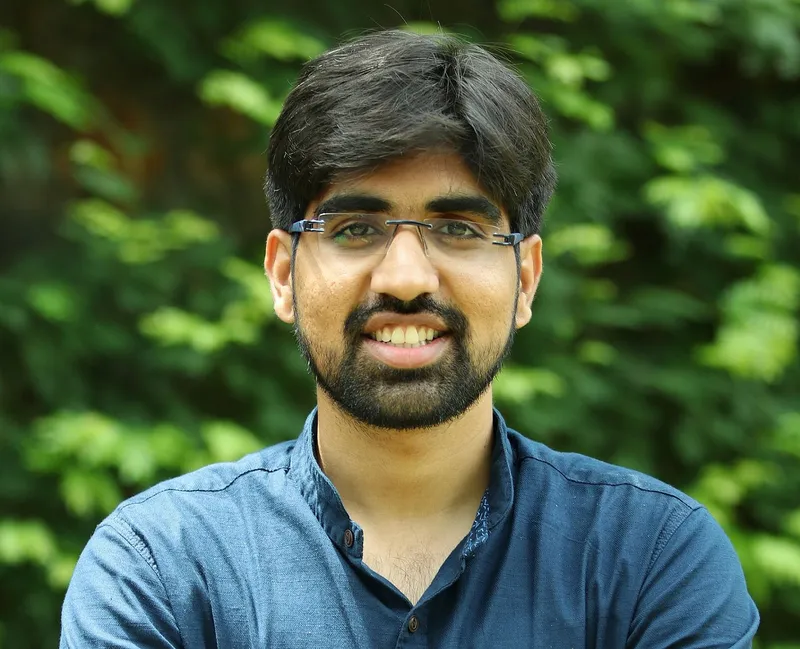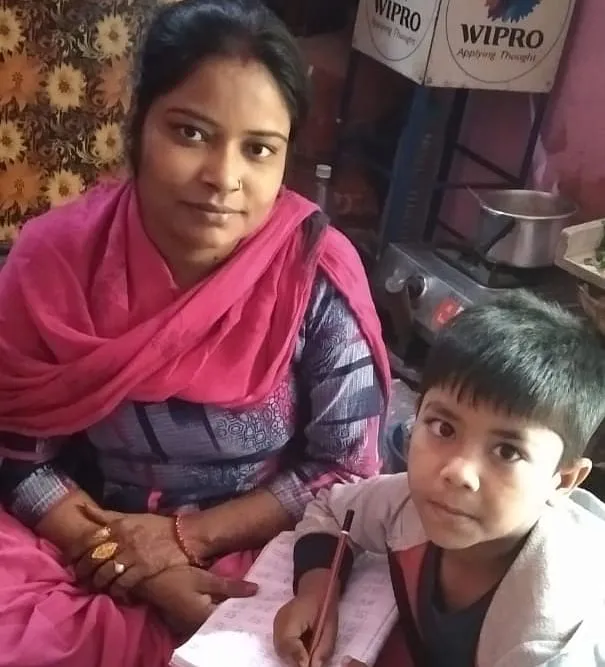COVID Warrior: How Saarthi Education is empowering women, educating over 8,000 children amidst COVID-19
Through its innovative blended programme, Saarthi Education has employed 157 women from low-income communities to educate children in Indian cities and villages.
“There is plenty of research that indicates parents’ involvement is a critical factor in a child's learning and overall life journey,” Ankit Arora tells SocialStory.
He founded Saarthi Education in 2017, which solves the dual issues of poor education and women unemployment in urban poor communities through an innovative blended programme of offline and online methods.
The non-profit provides a direct-to-home service and works with mothers and children of age 5 to 10 years (From kindergarten to Class 5).

Ankit Arora, Founder and Director, Saarthi Education
“We have used evidence-backed practices to create a programme that is contextualised to Indian urban poor communities,” Ankit says.
The programme is delivered to mothers via community-based women who are trained to be Saarthi's Relationship Managers (RM) in the community.
At present, it is working with over 8000 children and 157 women in Delhi (20 communities), Tier-II cities like Faridabad, Ballabgarh, and Dehradun (30 communities), and in a tribal belt in MP (14 villages).
Pandemic activities
Amidst the COVID-19 pandemic, the non-profit launched a WhatsApp-based intervention programme for children in urban poor communities.
“This method does not require full-time smartphone availability or high bandwidth and can work via feature phones,” says Ankit.
Each community has a relationship manager — usually a woman — who is paid a stipulated amount, who enrols 40-50 kids in her batch.
To gauge where a child stands in terms of learning and knowledge — irrespective of their age — it provides a diagnostic test to these children.
After careful consideration, the children are allotted worksheets that are sent to their parents’ phones in the morning. The parents take a picture of the answers and send it to the RM, who enters their scores into Saarthi’s system.
If a child is consistently scoring poorly, it makes the required intervention to ensure the child improves.

One of the relationship managers of Saarthi with her students pre-pandemic
Besides its educational initiatives, Saarthi also created a fund for direct cash transfers to families in financial distress.
When times were uncertain, the NGO also created a live dashboard for oxygen cylinders, beds, etc., to handle the increasing demand.
It verified these leads to accurately fulfil requests from communities as they did not have access to Twitter and other portals.
“We were also able to create a vaccine slot update bot on WhatsApp for our field staff. However, due to lack of availability of vaccines, we are now in conversations with a few providers to get our team on the field vaccinated,” says Ankit.
Impact
For the women in its community, their income increased by 40 percent, which gave them financial freedom and a better social standing and capital.
Shobha Kushwaha — a Relationship Manager from East Delhi — says she has the highest engagement rates with children and mothers.
During the pandemic, her husband lost his job, and they were facing acute financial constraints. The house rent was also due for two to three months, but thanks to her work as an RM, she could repay the rent on time.
"I used to work as a cook before joining Saarthi. I came to know about Saarthi as my son got enrolled in its programme. My child gradually started getting better at Maths, and his grades started improving,” she says.
“Soon, I also started working as a Relationship Manager with the team to take their programme to other mothers in my area. Today, I have the confidence to take care of my family. I really feel proud that we as a team are acting as changemakers in the education of children from my community," she adds.

Shobha Kushwaha
The children also showed a great improvement in their studies. In fact, the latest RCT study shows that Saarthi students grew four times more than students in a control group.
“During COVID-19, Saarthi was able to provide a home-based model with low-tech requirements. Its model has shown both strong engagement and impact — more than 90 percent Daily Response Rate and students growing 4X more in arithmetic skills as compared to a control group,” says Akshay Soni, Managing Director, N/Core, The/Nudge Centre for Social Innovation, which supports Saarthi.
It takes around Rs 1,900 to support one child per annum, and 70 percent of the cost goes directly to community women as a stipend.
Ankit says the NGO receives funds from various foundations, including Central Square Foundation, Motivation for Excellence CSRs, Max India Foundation, InfoEdge Awards/Support, The Nudge Centre for Social Innovation (Selection in Accelerator – one of the top 4 NGOs selected during COVID-19), and Omidyar Networks (Rapid Relief Response award).
Challenges and the road ahead
While there has been an increase in smartphone penetration, children are unable to block that one shared device for about four to five hours a day.
Moreover, the data plans allow for a maximum of 1-2 GB per day limit, while online classes might need a lot more.
“Many children are also at very different levels. One eight-year-old child in Class 3 might know subtraction, while there will be others of the same age struggling with simple additions. So, you need to create a more personalised approach,” shares Ankit.

One of the managers with her student in a one-on-one interaction
Women want to work but require a lot of flexibility in terms of timings and geography. Safety and cultural norms restrict them from going outside the community or working full time.
“We take all of the above into account while designing our programme and ensure high efficacy,” he adds.
For the road ahead, Saarthi is working on improving its tech infrastructure to include chatbot-based services to the parents and also partner with the various state governments to upscale its efforts.
“We are planning to ramp our programme and provide employment to 100-150 women from families who might have lost the primary breadwinner to COVID-19,” says Ankit.
Edited by Suman Singh


![[COVID Warriors] This NGO is caring for children who lost their parents to COVID-19](https://images.yourstory.com/cs/5/98c65090592f11ea9f62339ce853ca75/Imagewkiq-1622653296824.jpg?fm=png&auto=format&h=100&w=100&crop=entropy&fit=crop)
![[COVID Warrior] How this NGO has ensured health, wellness and education to over 15 lakh children amid the pandemic](https://images.yourstory.com/cs/5/98c65090592f11ea9f62339ce853ca75/Imagewfa9-1624385874395.jpg?fm=png&auto=format&h=100&w=100&crop=entropy&fit=crop)




